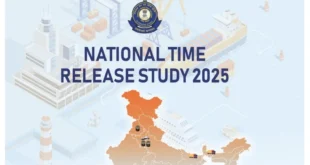Twitter wars over the label ‘urban Naxal’ do nothing to address the deprivation of marginalised groups
One of the main things that the 21st century will be known for is the formation of what Bruns and Burgess call “ad hoc issue publics” or the formation of selective channels centred on a particular topic. For keyboard knights of every ideological persuasion, hashtags have become a popular, swift and efficient way of marshalling and deploying public opinion. Recently, two hashtags became popular in India — UrbanNaxal and MeTooUrbanNaxal.
About a phrase
For the uninitiated, an “urban Naxal” is apparently a member of the bourgeoisie that sympathises with pro-poor and pro-tribal causes and does so from the relative comfort of middle-class and rich homes and offices. A film-maker, Vivek Agnihotri, used the term in a book titled Urban Naxals: The Making of Buddha in a Traffic Jam , and it has since achieved prominence. In the wake of the detention of five prominent activists and rights workers last month, Mr. Agnihotri asked for people on Twitter to identify urban Naxals. Given that the term was used by the Maharashtra police to detain activists, the term has come to assume automatic criminality if one is identified as an urban Naxal. In response to this, many began using a counter-hashtag, “MeTooUrbanNaxal”, to express solidarity with those charged with being Naxal sympathisers. This hashtag war begs many questions. First, why are people who work to advance the rights of underprivileged persons (tribal and Dalit) now being identified as dissenters, traitors and criminals? Second, how legitimate are these hashtags, i.e., do both hashtags actually map on to reality? Third, if they don’t map on to reality (as I will argue), then what is their applicability to public debate? Fourth, are these merely wars of idle rhetoric?
My point of intervention in this debate is to identify the pointlessness of wars of rhetoric, especially when the wars are spearheaded by people with an inadequate and casual understanding of ground realities. Both tags, “UrbanNaxal” and “MeTooUrbanNaxal”, are dissociated from facts. Not everyone that leans left, or veers towards liberalism, supports the Communist Party of India (Maoist), although they may definitely care about the poor and the underprivileged. Similarly, not everyone who is a tribal person and hails from Chhattisgarh is automatically a member of the CPI (Maoist). Further, it is highly unlikely that most of those who use either of these hashtags really understand the meaning of the term “Naxal”. Both hashtags promote a useless debate where not everyone is arguing about the same facts or they are not arguing about facts at all. There are repercussions for replacing meaningful debate with a war of inelegant rhetoric. Twitter, like every other social media platform, encourages the extension of one’s personal ego. It is a platform where people think what they say is valuable even though the thought itself may not possess logic and is not undergirded by fact. Yet the thought acquires legitimacy because it is enslaved as a hashtag and deployed in the service of ideologies and counter-ideologies. In doing so, something that is unreasonable and not factual acquires “truthiness” (to borrow from American television host Stephen Colbert) and becomes a new narrative displacing real fact. Both sides of this facetious debate do grave injustice to a severe and violent issue that has its roots in systemic deprivation of marginalised groups. Mr. Agnihotri’s call to identify urban Naxals is nothing short of a stupid witch-hunt, but the response to him has been equally dull-witted because it has ended up propping up the very term it was meant to destroy.
Vasundhara Sirnate Drennan, Co-founder of and Director of Research at The Polis Project Inc., is based in Northern Ireland
Check Also
Biofuels and the Food vs. Feed Dilemma
GS3 – Environment Context India’s growing emphasis on biofuels is raising alarm over the diversion …
 Chinmaya IAS Academy – Current Affairs Chinmaya IAS Academy – Current Affairs
Chinmaya IAS Academy – Current Affairs Chinmaya IAS Academy – Current Affairs


